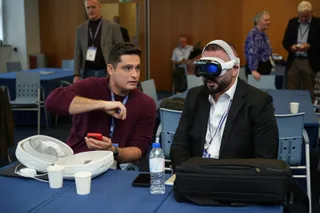Pittsburgh Adds First EMTs Since 2003 to Ease Strain on Paramedics
Contact Our Team
For more information about how Halldale can add value to your marketing and promotional campaigns or to discuss event exhibitor and sponsorship opportunities, contact our team to find out more
The Americas -
holly.foster@halldale.com
Rest of World -
jeremy@halldale.com
Emergency medical technicians are returning to Pittsburgh for the first time in more than a decade as officials work to reinforce the city’s strained paramedic forces.
Fourteen new EMTs finish training and hit city streets on May 30, Bureau of Emergency Medical Services Chief Robert Farrow said.
The staffing boost should help lighten the day-to-day burden on the more highly skilled paramedics — who are facing higher call volumes each year — and reduce the city’s reliance on mutual-aid calls, which occur when outside agencies respond to medical emergencies within Pittsburgh limits while city paramedics are busy on other calls.
City officials also hope the addition of EMTs will help cut costs — in 2016, the bureau logged 138,444 hours of overtime, costing the city $4.5 million, according to the Office of Management and Budget.
On average, the city relies on mutual aid about three times a day, Chief Farrow said, but on some days that number reaches 15 mutual-aid calls per day.
When paramedics from other agencies are responding to Pittsburgh’s calls, they can’t get to their own calls and might need to rely on mutual aid from a third agency to cover their territory, city Public Safety Director Wendell Hissrich said.
“It’s a cascading effect on the whole region,” he said.
The new EMTs will add two ambulances to the city’s force and will answer low-priority and minor calls, Chief Farrow said. Of the roughly 61,000 calls that EMS responded to in 2016, about 14,000 were considered low priority.
EMTs receive less training than paramedics. They are equipped to handle basic functions like bleeding control, CPR and basic airway management, said Mark Pinchalk, EMS patient care coordinator. Motor vehicle crashes with minor injuries, general illnesses, broken bones and overdoses are all well within EMTs’ ability, Mr. Pinchalk said.
Paramedics perform more advanced care, like starting IVs, giving some prescription drugs and using a defibrillator.


